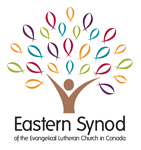My name is Emily, I am 18 and live in Toronto which is the traditional territory of the Mississauga, Annishabeg, Haudenosaunee, and Wendat peoples. I attend St. Phillips Lutheran Church in Etobicoke. These prompts had me do a lot of deep thinking and helped me spark conversations around these issues with my own friends! Thank you for all the work you are doing!!
I often find that the church’s language and actions towards things don’t match what I believe. Sometimes I let this go because “that’s the way it always has been” and working to change these things is hard work, but other times I’ll use different pronouns for God when speaking and find that the bible consistently calls us towards listening to the unheard voices. Women’s voices are often silenced or not present which is the same with all people of colour and marginalized groups when the focus is all on our main man Jesus. Although Jesus was not a white man, He/She/They is often portrayed as such and that is the first thing that comes to mind when I think of Jesus. In the era of #MeToo the annual Christ the King Sunday almost seems backwards to me. All the language used about the power of God is male-centric when Jesus was so much more than that. I would like to see the focus instead be on being kind and brave and generous, that is what expressing faith is about to me. My initial reaction to this question about the beads is that “oh it doesn’t matter they’re just beads” but it is so much bigger than that. I’m not sure choosing different colours is the right answer and I also don’t think that not attaching meaning is the right answer either. The messaging that white things are inherently good and black things are bad is destructive at the least and boring at best. I think when working towards social justice and equity within the church and anywhere it requires all of us to step back and question everything. Why are we doing it like this? Why are certain voices not being given the chance to be heard? What can we change? Ultimately, traditions are made by people and people can change them.
I am extremely privileged, although it is scary being a woman sometimes. I am a young adult and often feel underestimated in my capabilities because I am young. It feels frustrating that people often discount my perspectives because I haven’t lived a hundred years yet, but my world view is different and just as valuable! Learning about social justice and equity has been something that has been a part of my life since I was young, and in addition to living in the most diverse and populous city in Canada, these factors have really shaped the way I think about racism and how I fit into that.
The whole world is our neighbour. In an increasingly globalized world, there is not one person on the map we are not connected to. It is our duty as people of faith to be there for those that need help, whether that is the person down the road or across the globe. We need more youth voices and female voices and LGBT+ voices and indigenous voices and people of colour’s voices, we need them all. When we are talking about something that affects a certain group, that group needs to have representation because no one knows what they need better than them. The more people see each other the more people want to help each other. There are voices that are left out, but we need to build a bigger room, buy a longer table, grab another microphone, or say “you can sit with us” and pull up a chair because that is what Christians do. That is what good people do, that is what Jesus did, and that is what I want to do.
– Emily is from Toronto and attends St Philip’s Lutheran Church in Etobicoke.
